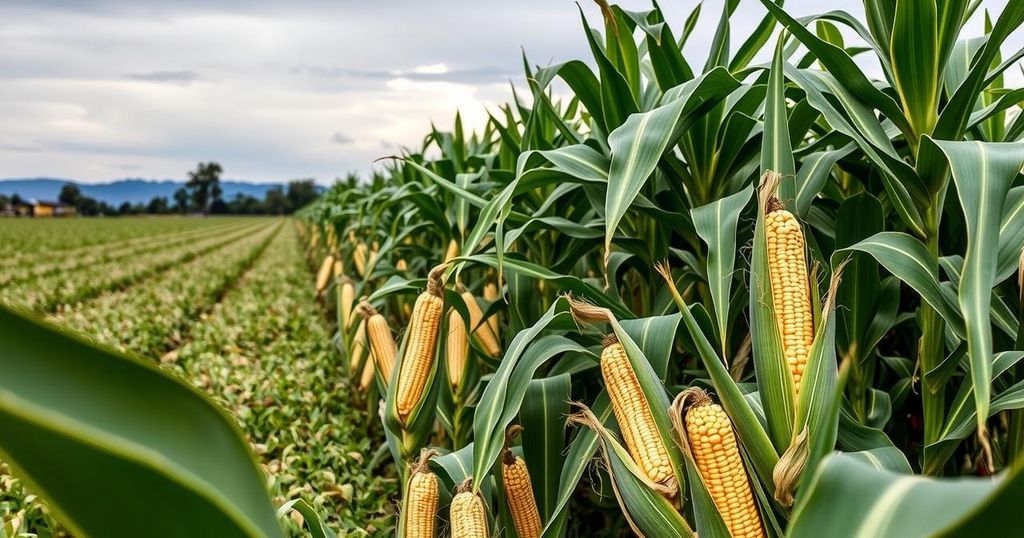Recent dry weather in Argentina has spurred increases in soybean and corn futures, with prices rising 1.29% and 0.78%, respectively. This situation intensifies concerns about crop yields while Kazakhstan boosts its grain exports by 54%. Weather-related challenges continue to reshape global grain markets and agricultural dynamics, underscoring the effects of climate change on these sectors.
Recent weather conditions in Argentina have significantly impacted agricultural markets, leading to notable increases in soybean and corn futures on the Chicago Board of Trade. Specifically, soybean prices surged by 1.29%, reaching $10.04 per bushel, while corn experienced a rise of 0.78%, priced at $4.54 per bushel. These changes are attributed to ongoing hot and dry weather, which raises concerns regarding the 2024/25 crop yields despite some recent rainfall. Additionally, wheat futures also saw an increase of 0.8% to $5.33 per bushel due to weather-related supply limitations around the globe. In contrast, Kazakhstan has capitalized on these developments, boosting its grain exports by 54% year-on-year, with 3.7 million metric tons shipped from September to December. Meanwhile, French farmers have expressed dissatisfaction, protesting what they perceive as unfair competition amid these market shifts.
The article discusses the broader implications of agricultural market dynamics amid climate changes, specifically focusing on the impact of dry weather in Argentina on global crop yields and prices. As a key player in the agricultural sector, Argentina’s fluctuations in weather patterns create ripple effects across international markets. Kazakhstan’s increased grain exports exemplify how countries can adapt their strategies in response to competitive market conditions, while unrest among farmers in France underscores the domestic challenges countries face in navigating international trade.
In summary, dry weather in Argentina has sparked a rise in soybean and corn prices, highlighting the significant influence of climatic conditions on agricultural markets. Kazakhstan’s strategic increase in grain exports further exemplifies the shifting global agricultural landscape, while protests in France reflect local discontent amidst these changes. As markets continue to respond to environmental factors, it is crucial for stakeholders to monitor these developments closely.
Original Source: finimize.com






